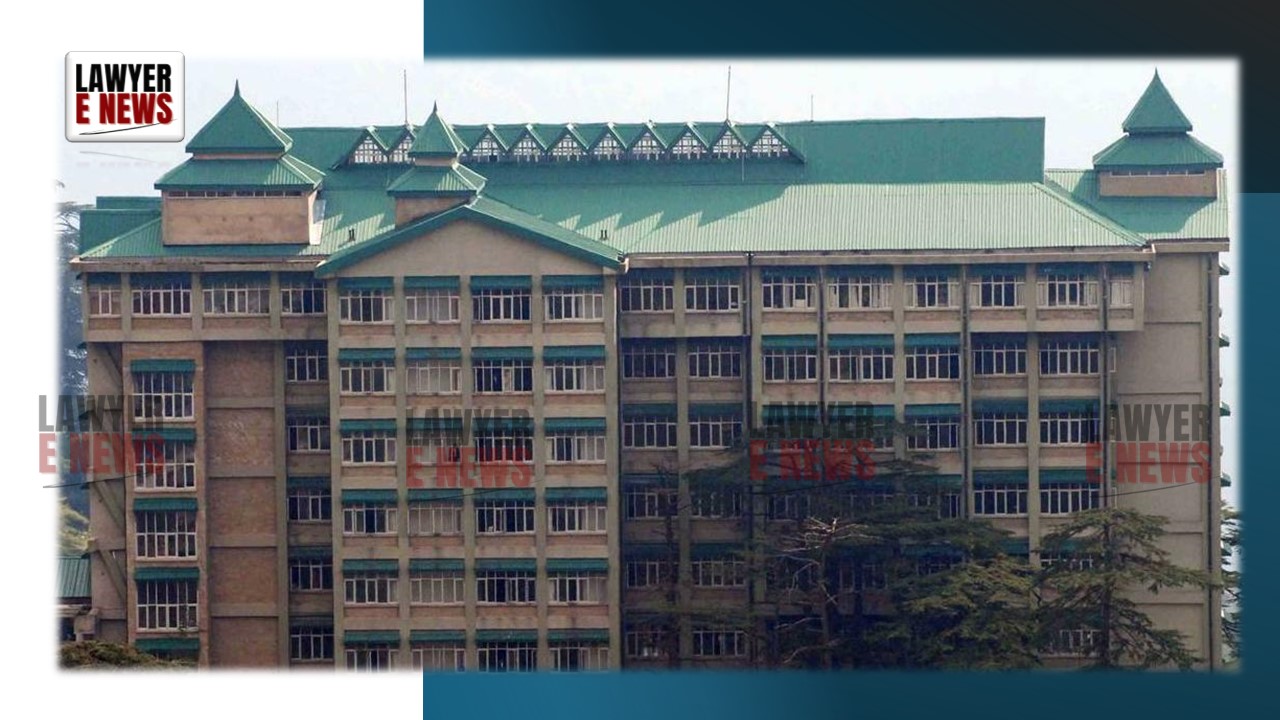-
by Admin
15 February 2026 5:35 AM



Himachal Pradesh High Court, presided over by Justice Rakesh Kainthla, delivered a crucial ruling in Rajeev Sindhu v. Anita Kumar (Criminal Revision No. 323 of 2021). The case revolved around a revision petition filed by Rajeev Sindhu challenging the Family Court's order that granted interim maintenance of ₹25,000 per month to his estranged wife, Anita Kumar. The petitioner argued that the maintenance exceeded the wife's original claim of ₹15,000 and raised issues of voluntary desertion and marital status. The High Court, however, upheld the Family Court’s decision, clarifying that courts have the discretion to award higher maintenance if justified by circumstances, income, and the wife's needs.
Anita Kumar filed for interim maintenance under Section 125 of the Code of Criminal Procedure, 1973, claiming that her husband, Rajeev Sindhu, had stopped supporting her financially, even though he earned over ₹1,50,000 per month. Rajeev contended that Anita had voluntarily left the matrimonial home and that she had sufficient income to support herself. Initially, Anita requested ₹15,000 per month as interim maintenance. However, based on Rajeev's income disclosures, the Family Court awarded ₹25,000 per month, prompting Rajeev to file a revision petition challenging the order.
Whether the Family Court was justified in awarding ₹25,000 in interim maintenance, which exceeded the amount initially claimed.
Whether Anita's alleged voluntary desertion of the matrimonial home disqualified her from receiving maintenance.
Whether Anita remained entitled to maintenance while her husband's petition seeking the nullity of their marriage was pending.
Rajeev argued that since Anita had only claimed ₹15,000 per month, the court had no basis to award ₹25,000. However, the High Court cited various precedents that allow courts to award more than the claimed amount if justified by the spouse's income and the financial needs of the applicant. Justice Kainthla noted:
“There is no specific restriction under Section 125 Cr.P.C. that the Court cannot award more than the amount claimed. The duty of the Court is to provide just maintenance to the deserted wife.”
The Court referenced the case of Dhani Ram Bhatia v. Kalawati (2015 SCC OnLine HP 3156), which allowed for increased maintenance due to changes in financial circumstances, reaffirming that courts can exercise discretion in such matters.
Rajeev claimed that Anita had voluntarily left their matrimonial home and thus should not be entitled to maintenance. However, the Court emphasized that interim maintenance cannot be denied solely on the grounds of voluntary desertion, especially when there are allegations of cruelty. The Court found insufficient evidence that Anita had left the matrimonial home without just cause, citing:
“A perusal of the examination of the applicant does not show that she had left her matrimonial home voluntarily. She repeatedly stated that she was beaten and left at her paternal home.”
The Court further referenced Sarmistha Dewan Ghosh v. Milanmoy Dewan (2020 SCC OnLine Tri 600), which held that interim maintenance should not be denied based on claims of voluntary desertion.
Rajeev also contended that his petition seeking to annul their marriage, which was pending before the Family Court in Shimla, should disqualify Anita from receiving maintenance. The Court, however, rejected this argument, reiterating that until a valid decree of nullity or divorce is issued, Anita retains her legal status as Rajeev's wife and is entitled to maintenance. The Court observed:
“The applicant is to be treated as the legally wedded wife of the respondent till the marriage between them is dissolved by a valid decree of divorce.”
Interim Maintenance Justified: The Court upheld the Family Court’s decision to grant ₹25,000 per month in interim maintenance. Given Rajeev’s income, which exceeded ₹1,50,000 per month, and the financial requirements of Anita, the amount was deemed appropriate.
Higher Maintenance Award Justifiable: Despite Anita initially claiming ₹15,000, the Court ruled that awarding a higher amount was within its discretion, especially in light of Rajeev’s substantial earnings and the wife’s financial needs. The Court emphasized that inflation and changes in financial circumstances can warrant such an adjustment.
No Proof of Voluntary Desertion: The Court found that Rajeev’s claim of voluntary desertion was unsubstantiated and noted that allegations of cruelty supported Anita’s decision to leave the matrimonial home. The Court confirmed that voluntary desertion is not a valid ground for denying interim maintenance.
Marital Status Unchanged: The Court held that until a valid decree of nullity or divorce is issued, Anita remains Rajeev's legally wedded wife and is entitled to maintenance under Section 125 CrPC.
The Himachal Pradesh High Court dismissed Rajeev Sindhu's revision petition, affirming the Family Court's order of ₹25,000 per month in interim maintenance for Anita Kumar. The judgment reinforces that courts have broad discretion to award just maintenance based on the financial status of the parties, even if it exceeds the claimed amount. It also clarifies that allegations of voluntary desertion, especially in the context of cruelty, do not disqualify a wife from receiving maintenance. Finally, the wife's entitlement to maintenance remains intact until the marriage is dissolved by a valid decree.
Date of Decision: September 23, 2024
Rajeev Sindhu v. Anita Kumar
